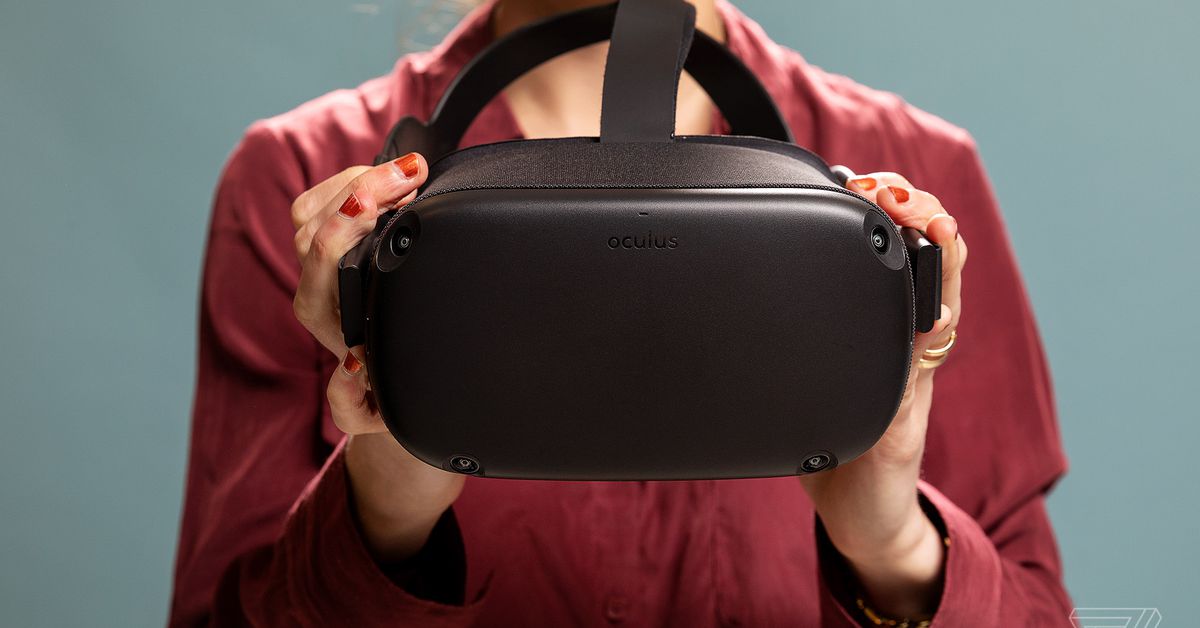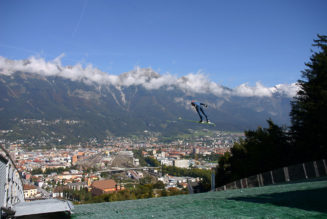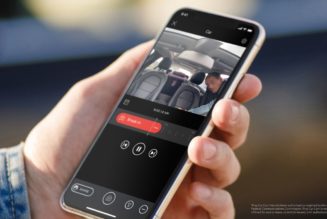
Facebook is reportedly developing a second-generation version of its standalone Oculus Quest headset, with the successor potentially set to be smaller, lighter, and with a faster refresh rate than the original, per a report from Bloomberg. While there are apparently multiple versions of the Quest follow-up in the mix, it might be some time before the headset launches due to delays in both development and manufacturing caused by the pandemic.
The $399 Quest was Oculus’ most console-like headset, promising a full-fledged, self-contained VR setup for a single price, without requiring customers to have a gaming PC setup or additional hardware to enjoy VR content. But the standalone design made it less powerful than traditional headsets, and it was uncomfortable to wear for long periods of time, among other flaws.
According to Bloomberg, Facebook hasn’t decided what the final design will be yet, although it seems like one of the main goals is to reduce the weight and size of the current model to make it more comfortable to wear for longer. Current prototypes reportedly range between 10 to 15 percent smaller and weigh closer to a pound, compared to the 1.25 pounds of the current Quest.
Notably absent from Bloomberg’s report is any mention of changes on the hardware front beyond the switch from a 60Hz fresh rate to a faster 90Hz or even 120Hz panel for displaying content more smoothly. (Like the other changes, Facebook has yet to decide with refresh rate it’ll be using.) One of the biggest compromises of the original model was the relatively underpowered hardware compared to tethered sets, so it’ll be interesting if Facebook attempts to address that on the new model.
Other changes may come to the overall style and design of the Quest, like swapping the fabric sides for plastic (said to be similar to the Rift S) and using a more elastic material for the straps. The company is also said to be working on updated controllers for the Quest that will be more comfortable to hold and fixing a flaw on the current models that results in the battery door occasionally falling off. The new controllers would be compatible with both the current and new models of the Quest.
Some changes would be more minor. The new Quest could potentially continue to offer a physical mechanism to adjust the interpupillary distance to adjust the internal displays, will still feature external cameras to let users look and walk around with six degrees of freedom, and still support the Oculus Link cable for customers looking to use the Quest as a VR headset display for their more powerful gaming PC.
According to Bloomberg, Facebook had originally planned to launch the second-generation Quest at the end of the year by its Oculus Connect conference, although that release date may now be delayed until 2021 due to the impact of the pandemic.
Along with the new Quest, Oculus is also apparently working on an AR headset for a planned 2023 launch, although that may also see delays because of the virus, with engineers only able to work on software and apps for the device while the labs for hardware development are closed.









